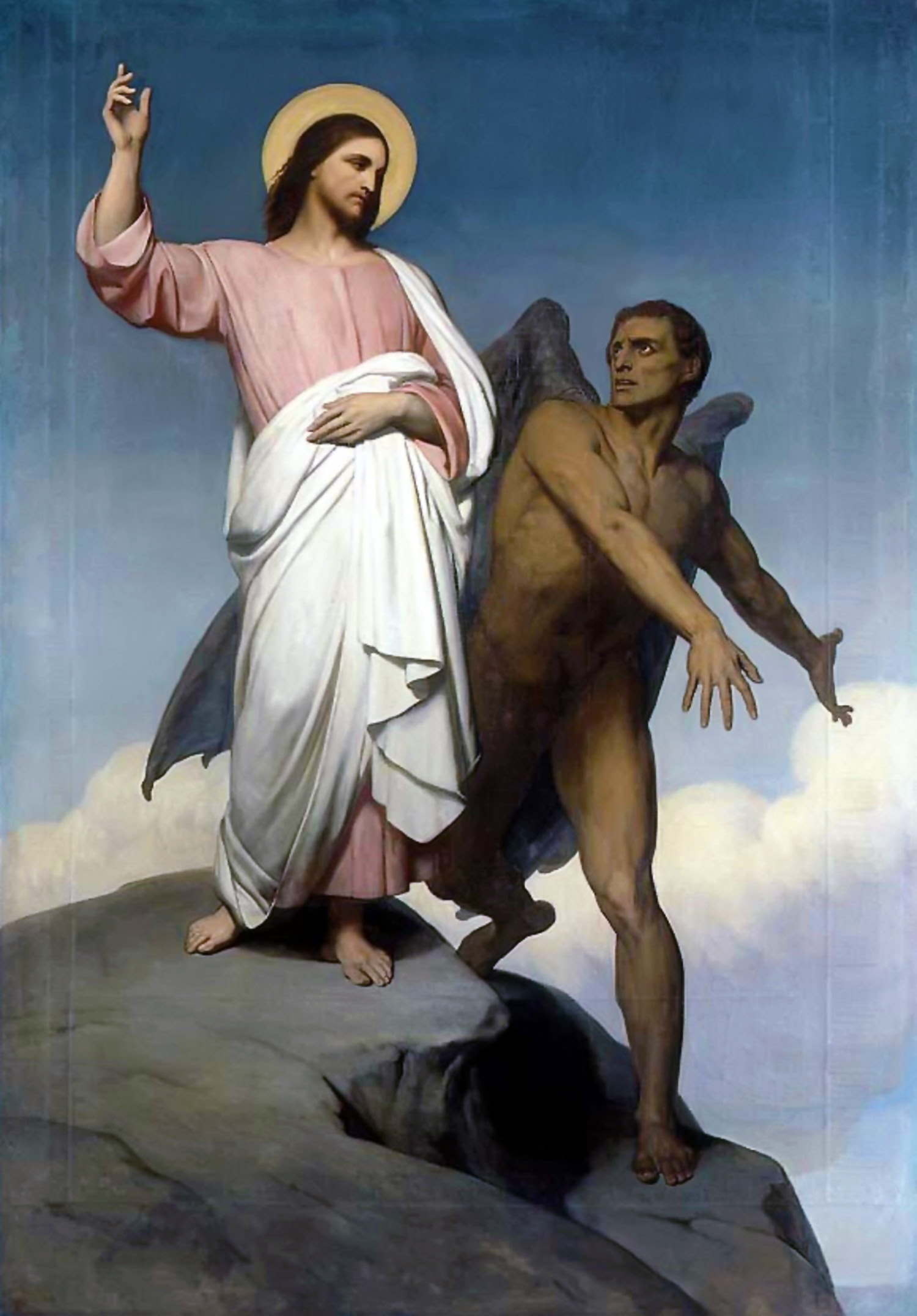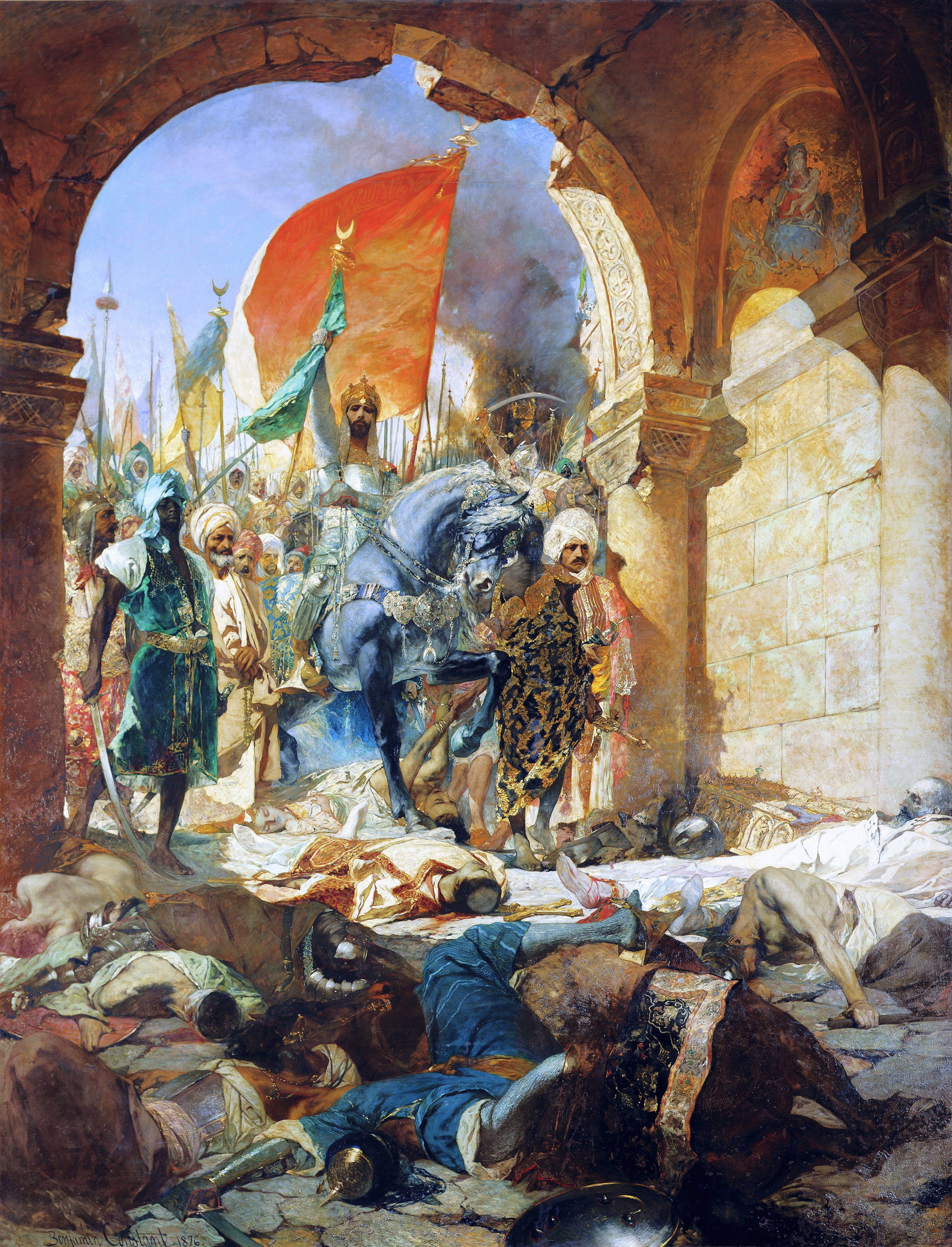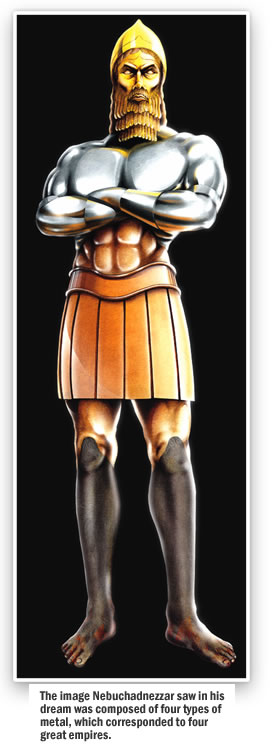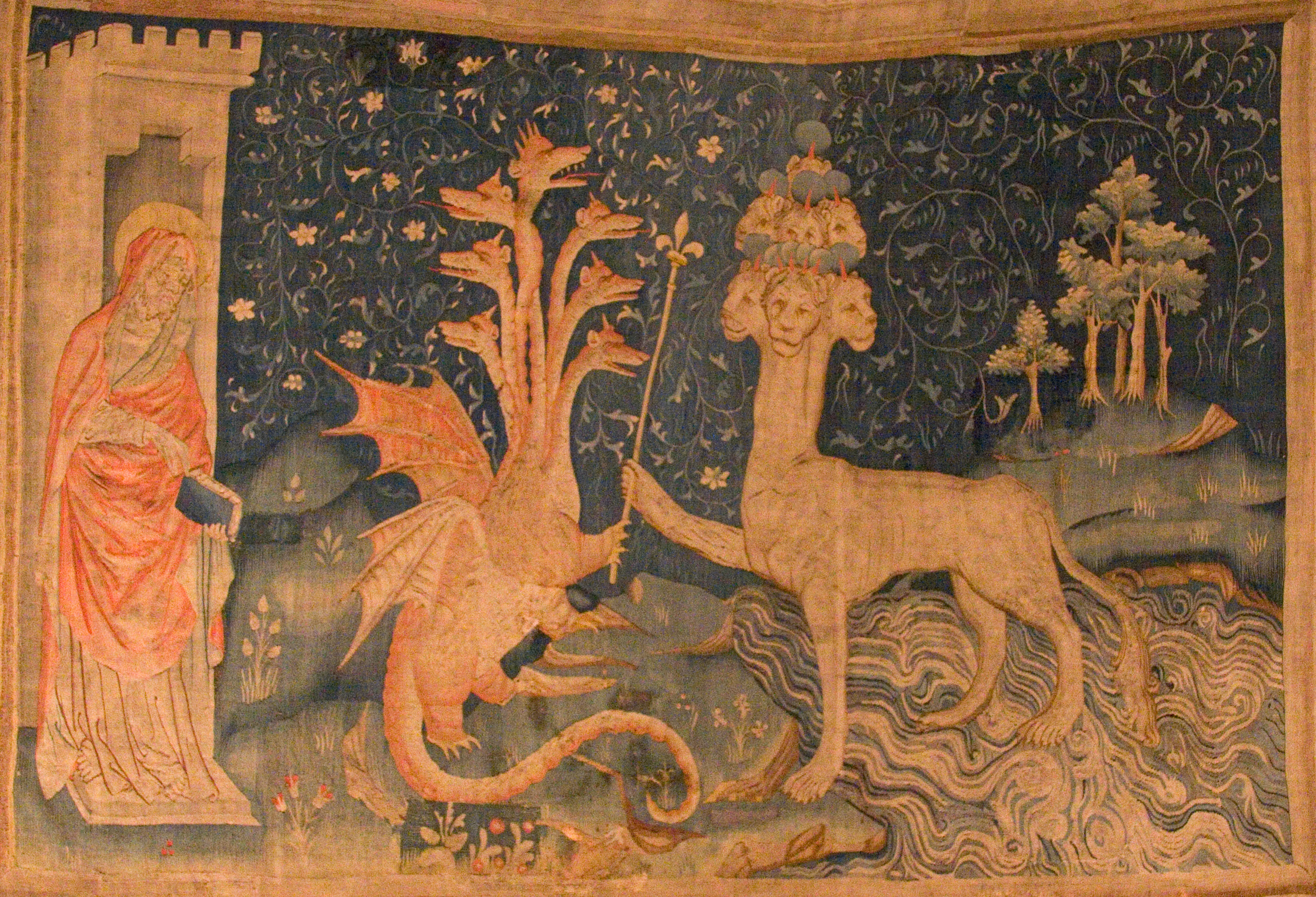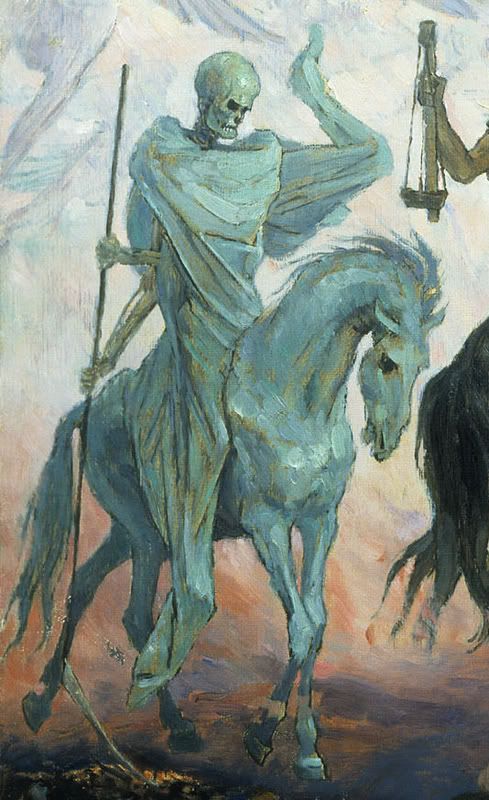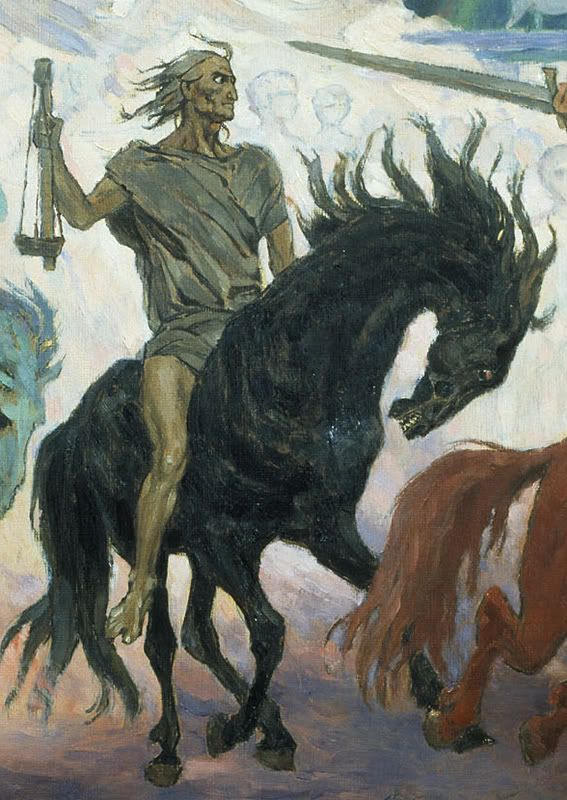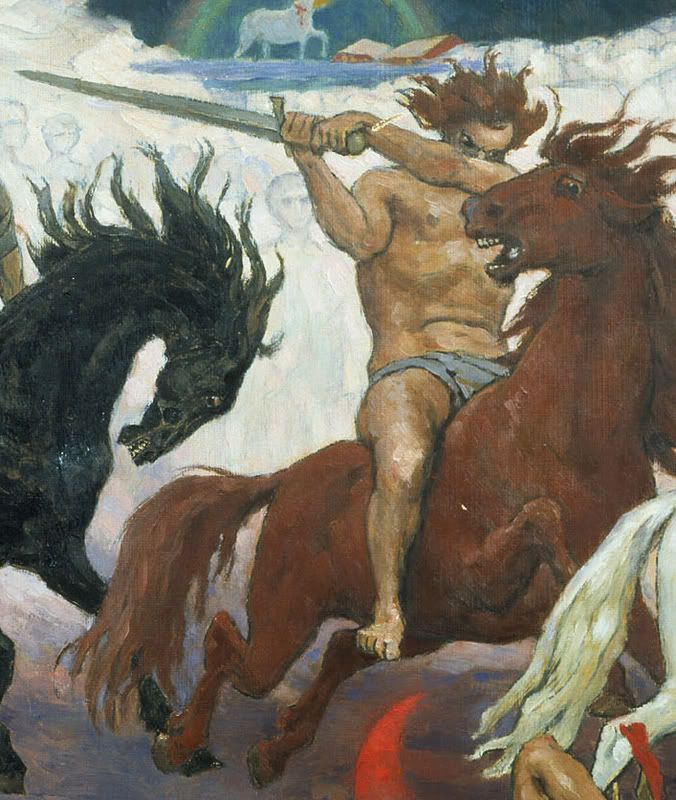Fix these words of mine
in your hearts and minds;
tie them as symbols
on your hands and
bind them on your foreheads.[Deut 11:18]
And the Jews literally made small black leather boxes containing scraps of the Torah and bind them with black leather straps on their arms and their foreheads.
I was most surprised when I first saw religious Jews in Israel wearing them. For it was obvious, at least until then, that the injunction was a figurative one, and the true injunction really is to "fix" God's word in one's mind and heart. Now that is the thing to be taken literally!
I also scanned the Internet and realised there are lots of discussion on whether the bindings are literal or not. Of course I think these entirely misses the point: for even if one is to literally bind the "word" - ironically in symbolic scraps - on one's hands and head, they are - and again directly from the word itself, in the same sentence - just symbolic. So the real question is symbolic of what? And that was not discussed.
And this binding was first mentioned, in Exodus, at the giving of the Ten Commandments itself:
... Eat unleavened bread during those seven days; nothing with yeast in it is to be seen among you, nor shall any yeast be seen anywhere within your borders. On that day tell your son, 'I do this because of what the LORD did for me when I came out of Egypt.' This observance will be for you like a sign on your hand and a reminder on your forehead that the law of the LORD is to be on your lips.So it is the eating of unleavened bread, and this observance is like a sign and reminder.[Ex 13:7-11]
In other words even as a tattoo or a scar on the hands and heads serves as a constant, indelible, visible, and permanent reminder to yourselves and others, so shall the eating of unleavened bread serves to constantly remind yourselves and others as to who you are: 'I do this because of what the LORD did for me when I came out of Egypt.'
And later in the same chapter of Exodus:
This is why I sacrifice to the LORD the first male offspring of every womb and redeem each of my firstborn sons. And it will be like a sign on your hand and a symbol on your forehead that the LORD brought us out of Egypt with his mighty hand.So here it is the sacrifice of the first born that is to be the same as a sign on one's hands and foreheads, and again to remind of the same thing: God leading us out from Egypt. And yes we too are called out from Egypt, even Christ was called out of Egypt:[Ex 13:15-16]
... out of Egypt I called my son.And we too ought to wear on our hands and our foreheads the sign that the Lord have led us out from Egypt, which is this world. For we are pilgrims: we are in this world but not of this world.[Ho 11:1]
And by the time of the second saying in Deuteronomy, it is the entire infusion of the word in our lives: in our hearts and souls, in our waking and lying down, in our thoughts, our words and actions, in what we do or don't, in what we say or don't, that will perform the same as any marks or engravings on our hands and foreheads.
So are we wearing the mark of Christ on our hands and foreheads? Can it be seen that we are not of this world, that we have come out of Egypt? Is this mark permanently seared and engraved in blood on living flesh in our lives? Do we have the mark of Christ in us? Are we God's letters written in bleeding living hearts, unhidden, clearly seen and legible to all and any who sees and knows us?
And conversely can we also recognised the marks of the Beast? Are they not as clearly visible and constant as those of Christ too? And even as the word of God fixed in our hearts is our visible mark, what is that in the hearts of those without Christ?
He (the Lamb with the voice of the Dragon) also forced everyone, small and great, rich and poor, free and slave, to receive a mark on his right hand or on his forehead, so that no one could buy or sell unless he had the mark, which is the name of the beast or the number of his name. This calls for wisdom. If anyone has insight, let him calculate the number of the beast, for it is man's number. His number is 666.Immediately it is obvious that this mark has something to do with buying and selling. And for anyone to buy and sell you need Money.[Rev 13: 16-18]
So is Money then the mark of the Beast?
(And it is not really a strange thing that Money is a Mark of the Beast, for it has been rumoured for a long time that the Singapore one dollar coin was designed to meet fengshui requirements on the directions of none other than the then Prime Minister himself.)
And Money is not just a particular currency but the very notion and system that is Money itself, ie a worthless but trusted token representing value, which works only because everyone have faith in it, and which facilitates exchanges and trades - as per the Third Horseman - and all the economies and businesses derived from such a token.
Money is a perverse demonstration of faith. It cannot come into being without faith.
I accept your money, in exchange for my goods and services, because I have faith that someone will accept the same - and I can buy what I need - and via this recursive faith, Money comes into being. And Money is real, very real, and even now more powerful than any armies in the world.
(Just imagine then, conversely, the power of true faith.)
And even Mr George Bush the president of the most powerful country today on earth, succumbed to its demands, and its fathomless appetite, and no one can afford to maintain his principles, eg free market, and insist on being Republican or Democrat, but all have to be so called bi-partisan. And the Americans will abandon Taiwan without a second thought if Chinese money is needed, if it has not already happened. (And this event in early Oct 08 could just be a cover up.) And the British have courted Arab money.
So is not Money the real power in the world today? And does not the Market have a life of its own that no one, not even George Soros or Warren Buffet, or even any government can do a thing about, but rather all are its slaves and compel to serve it; and no one can walk away from it.
And are not almost everyone in the world so infused with Money in their thoughts, in their work, and in their attitudes and acts, such as to whom they befriend or not? I have known people who hated each other, but for the sake of business and some gains, engaged in dialogue and relationships, just for the mere potential of profits. If that is not prostitution then there is no need for that word.
And so whereas the Word in our hearts manifest itself outwardly even as clearly as any mark on our hands and foreheads, it is the outward manifestations of the world's hearts and minds in their constant and relentless pursuit of money which are the signs on their hands and foreheads, ie the mark of the Beast.
And whereas we know from the Word of God, the world can only know from Numbers, for the word in the world is thoroughly corrupted even from the time of Babel. And the Number of Man is anything that is derived from measurements, mathematics and symbolic thoughts, like logic. And all knowledge and wisdom of man can only be attained through numbers. And Economics is one such number.
